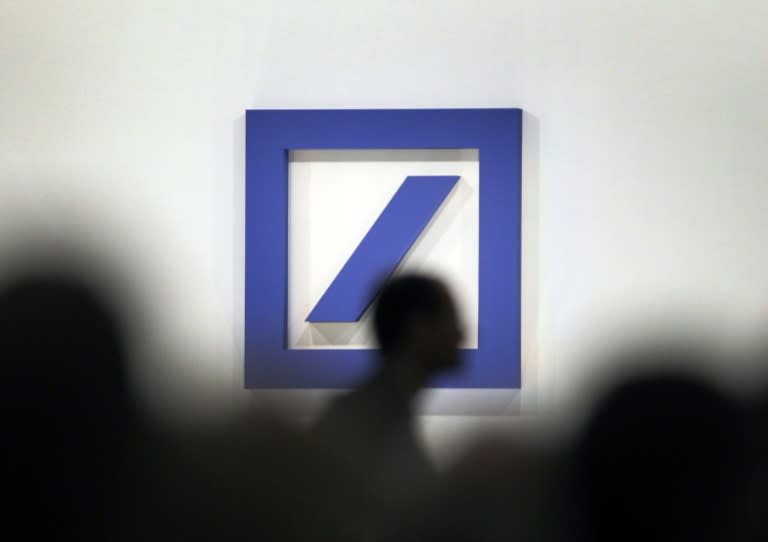Deutsche Bank shares bounce back into red after slump
Deutsche Bank shares turned positive Friday after widening concerns about its financial strength earlier plunged them deep into the red and sent ripples of fear across the sector, weighing on global stock markets. A report that several hedge funds had withdrawn their investments in Germany's biggest bank had sent Deutsche Bank's shares plunging by nearly 10 percent. By mid afternoon they had changed direction, gaining 0.5 percent at 10.93 euros at around 1435 GMT. Traders saw several reasons for the reversal. "People don't want to stay short on Deutsche Bank going into the weekend in case there’s a statement,” Sylvain Loganadin, a market analyst at FXCM, told Bloomberg. Other traders attributed the change to comments viewed as helpful by Deutsche Bank chief John Cryan in trying to reassure investors. The bank is in the spotlight after US authorities slapped it with a $14-billion (16.2-billion-euro) penalty over its sale of mortgage-backed securities prior to the 2008 financial crisis. There was also talk in the market that Deutsche Bank had a good chance of drastically reducing the US fine, but dealers said this had not been confirmed. Frankfurt's DAX also reversed direction and was marginally higher by late afternoon, while the CAC 40 in Paris and London's FTSE 100 remained around 0.5 percent down. In the US shares opened tentatively higher. There are fears the fine could batter the already fragile firm, fuelling talk that it would become another Lehman Brothers, the Wall Street titan whose downfall precipitated the global downturn six years ago. AFP sources knowledgeable of the situation confirmed 10 funds had pulled investments, but the bank said the report gave an overly negative view of the situation, noting it still had some 800 funds as customers who understand its "stable financial position". - Sea of red - The banking sector was a sea of red across trading screens. In Paris, shares prices for Societe General and BNP Paribas both slid. Spain's Santander slumped around 1.9 percent, Italian lender Unicredit tumbled 1.6 percent and Barclays gave up 1.2 percent in London. In earlier Asian deals, Japan's Mitsubishi UFJ Financial Group dropped more than two percent and Sydney-listed Commonwealth Bank lost 1.5 percent. "Fear is that the longer Deutsche Bank gets hit, the more the entire banking sector will get into crisis," said Markus Huber, a trader at City of London Markets. Italy's Finance Minister Pier Carlo Padoan, whose country is struggling to stabilise its own undercapitalised banks, said Deutsche's woes pointed to a need to strengthen the financial sector across Europe. "This business is a reminder that we still have great efforts to make to improve the state of the banking system," he told the La Stampa daily. "All of us need to find solutions that must be managed with the necessary caution." Offsetting the banks' troubles was official data showing eurozone consumer prices rose to a near two-year high of 0.4 percent in September. It offered hope that a disputed programme by the European Central Bank to stimulate the economy may be delivering. British official second-quarter growth meanwhile was revised higher slightly to 0.7 percent from 0.6 percent, raising hopes for the economy after the June Brexit vote.




